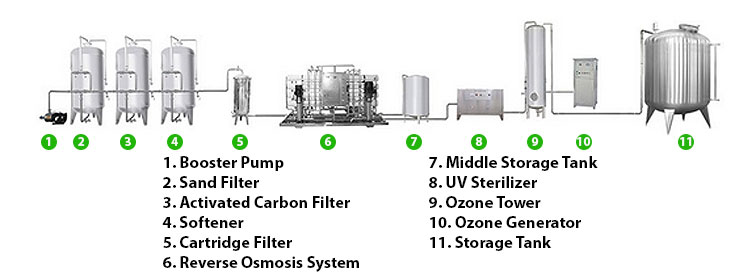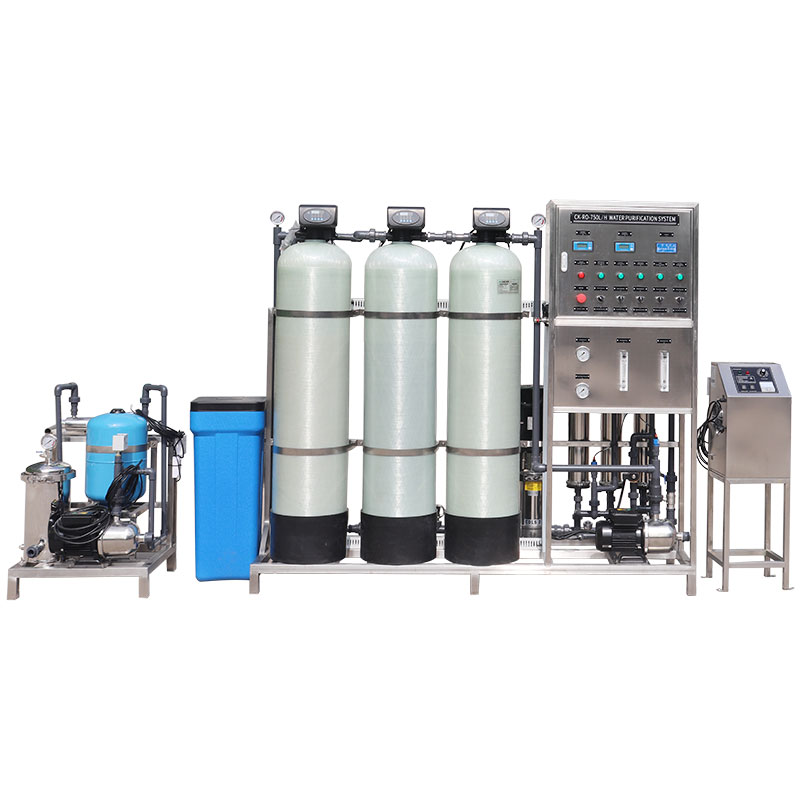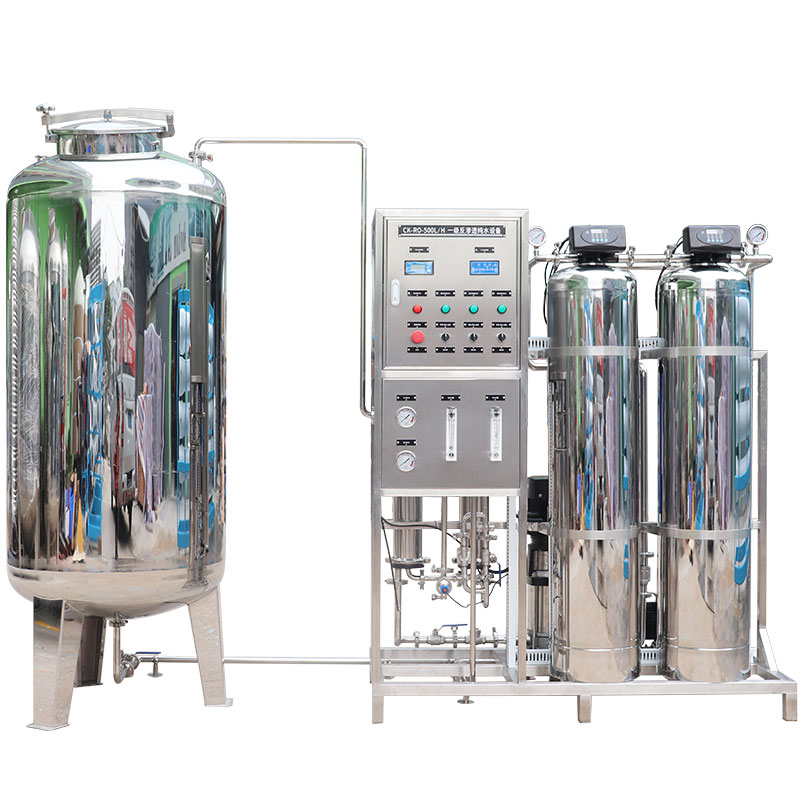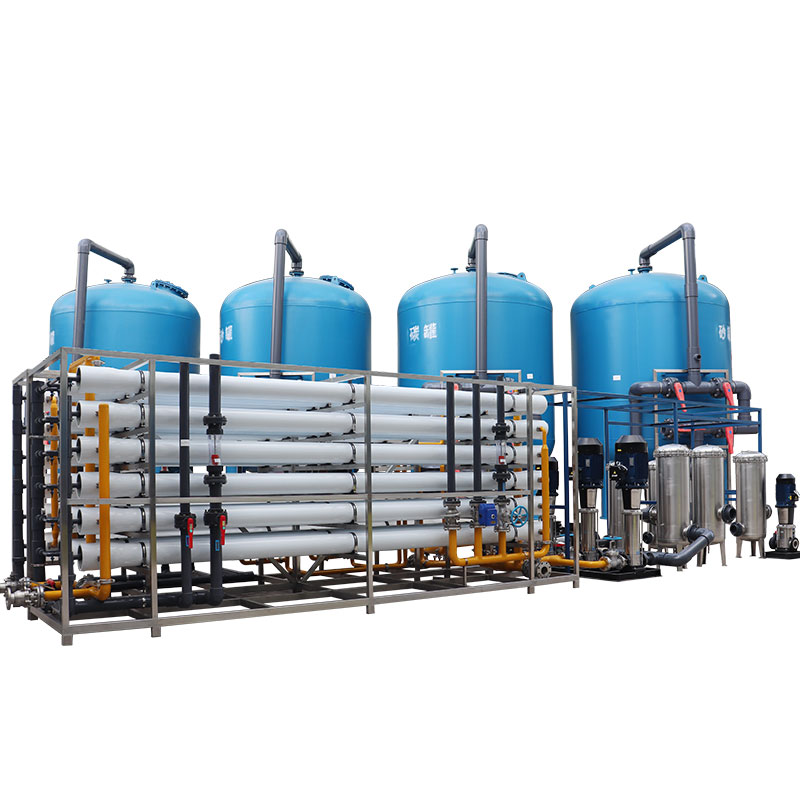How much does it cost to install a filtration system in a well?
In modern society, as water pollution problems have intensified, many families and communities that rely on wells as their main source of drinking water have become increasingly concerned about water safety. In order to ensure the safety of well water and the quality of drinking water, installing a filtration system has become a common and necessary practice.
So, how much does it cost to install a filtration system in a well? What filtration systems are available? This article will delve into these questions and help you make an informed decision.

How much does it cost to install a filtration system in a well?
The cost of installing a well filtration system varies depending on a variety of factors, including the type of filtration system selected, the quality of the well water, the complexity of the installation, and the geographical location. Here is a detailed analysis of some of the main factors.
Type of filtration system
Different types of filtration systems vary greatly in price, and the specific cost depends on the complexity, brand, and processing capacity of the filtration system. Common well water filtration systems include sand filters, activated carbon filters, ultraviolet sterilizers, reverse osmosis systems, iron-manganese filters, etc. Each filtration system has different functions and costs, and the price range is usually as follows:
● Sand Filter: Sand filter is the most common primary filtration device, used to remove suspended particles and large particles from water. Its cost is relatively low, usually between $300 and $800. The installation cost of sand filter is relatively low, but regular maintenance and cleaning of filter media are required.
● Activated Carbon Filter: Activated carbon filter can effectively remove odor, organic matter, chlorine and some harmful chemicals from water. Depending on the processing capacity and brand, the cost is between $500 and $1,500. The advantage of activated carbon filter is its high adsorption capacity, but the activated carbon needs to be replaced regularly to ensure the filtering effect.
● UV Sterilizer: UV sterilizer is used to kill bacteria, viruses and other pathogens in water, and is an important water quality safety equipment. The cost of installing a UV sterilizer is about $600 to $2,000, depending on the power of the equipment and the amount of water treated. UV sterilizers have low maintenance costs, but UV lamps need to be replaced regularly.
● Reverse Osmosis System: Reverse Osmosis system is an advanced water treatment equipment that can remove a variety of pollutants such as dissolved salts, heavy metals, bacteria, viruses, etc. from water. The installation cost of a reverse osmosis system is relatively high, usually between $1,500 and $5,000, depending on the system's processing capacity and brand. Reverse osmosis systems require regular replacement of membrane elements, and maintenance costs are relatively high.
● Iron and Manganese Filter: If the well water contains high concentrations of iron and manganese, an iron and manganese filter is essential. This filter can effectively remove iron and manganese from the water, making the water clearer. The cost of installing an iron and manganese filter is approximately between $800 and $2,500.
Water Quality Testing and Analysis
Before installing a filtration system, water quality testing is an essential step. The cost of water quality testing is usually between $100 and $300, depending on the complexity of the test project. By testing the main contaminants in the water (such as bacteria, iron, manganese, sulfide, organic matter, etc.), the most suitable type of filtration system can be determined.
Installation costs
The cost of installing a filtration system varies by region and system complexity. Typically, installation costs account for 20% to 50% of the total cost. For example, a simple sand filter installation may only cost $200 to $500, while a complex reverse osmosis system installation may cost $1,000 to $3,000. These costs usually include installation materials, pipe connections, and commissioning work.
Maintenance and operating costs
In addition to the initial installation cost, the maintenance and operating costs of the filtration system are also important factors to consider. The maintenance costs of different systems vary, for example:
● Sand filters and activated carbon filters require regular cleaning and replacement of filter media, and the maintenance cost is relatively low.
● UV sterilizers require regular replacement of UV lamps, and the maintenance cost is moderate.
● Due to its complexity, reverse osmosis systems require regular replacement of membrane elements and pretreatment filters, and the maintenance cost is high.
Depending on the type of filtration system and the water quality, maintenance costs can range from $100 to $1,000 per year.

What types of well filtration systems are there?
Installing the right filtration system not only ensures the safety of your well water, but also improves the taste and odor of the water. Here are some common well water filtration systems and their functions.
Sand filter
Sand filter is a basic and effective physical filtration device that is usually used to remove large suspended particles and sediments from well water. The filter bed of the sand filter is composed of multiple layers of quartz sand of different particle sizes. When water passes through the filter bed, large particles of impurities are trapped above the filter bed, resulting in cleaner water.
● Advantages: simple structure, low cost, and easy maintenance.
● Disadvantages: It cannot remove fine particles, organic matter, and dissolved substances, and the filtration effect is limited.
Activated carbon filter
Activated carbon filters are known for their strong adsorption capacity and can effectively remove odors, odors, chlorine, and organic compounds from water. The porous structure of activated carbon gives it a large specific surface area, which can adsorb pollutants in water.
● Advantages: Effectively remove organic matter and odor from water and improve the taste of water.
● Disadvantages: The activated carbon filter needs to be replaced regularly, otherwise the adsorption capacity will decrease.
Ultraviolet sterilizer
The ultraviolet sterilizer destroys the DNA structure of bacteria and viruses in the water by emitting high-intensity ultraviolet light beams, thereby achieving water disinfection. This physical disinfection method does not change the chemical composition of water or produce harmful byproducts.
● Advantages: High sterilization, simple maintenance, and does not change the taste or chemical properties of water.
● Disadvantages: Cannot remove physical or chemical pollutants in water, only suitable for sterilization and disinfection.
Reverse osmosis system
The reverse osmosis system is one of the most advanced water treatment technologies currently available, which can remove most soluble salts, heavy metals, bacteria, viruses, etc. in water. By applying pressure, water molecules pass through the semipermeable membrane, while soluble impurities are retained on the other side of the membrane.
● Advantages: High filtration accuracy, can remove most pollutants, and provide extremely pure water.
● Disadvantages: High equipment cost, regular maintenance required, and relatively low water production rate.
Iron-Manganese Filters
Iron-Manganese Filters are designed to remove iron and manganese from water. These two metals, when present in water, can cause the water to appear yellow or brown and affect the taste of the water. Iron and manganese are converted from dissolved states into solid particles through oxidation or catalytic reactions, and then removed by filtration.
● Advantages: Effectively remove iron and manganese, improving the appearance and taste of water.
● Disadvantages: Requires regular backwashing and maintenance, and has a high initial installation cost.

How to choose a suitable well filtration system?
When choosing a well filtration system, the following points must be considered:
Water quality test results
First of all, the water quality test results are the basis for choosing a filtration system. Different pollutants require different filtration technologies. For example, if the water contains a lot of iron and manganese, an iron-manganese filter is necessary; if the water quality contains a high content of organic matter, an activated carbon filter is indispensable.
Budget
Choosing a suitable filtration system based on the budget is an inevitable step in practical operation. Although high-end reverse osmosis systems are powerful, their high cost may not be suitable for all families. Relatively economical options such as sand filters and activated carbon filters, although limited in functionality, are sufficient to meet the needs of most households.
Installation and maintenance
Considering the ease of installation and maintenance is also an important factor in choosing a filtration system. Some systems such as reverse osmosis and ultraviolet sterilizers are powerful, but have high maintenance costs and are relatively complex to operate, requiring professional technical support.
Water demand
Household water demand is an important consideration in choosing a filtration system. Large households or occasions where large amounts of well water need to be processed require systems with stronger processing capabilities, such as large-capacity sand filters or reverse osmosis systems.

Conclusion
Installing a filtration system in a well can not only effectively improve the safety and quality of well water, but also improve the household water experience. However, the selection and installation of a filtration system involves many considerations, including water quality conditions, budget, maintenance requirements, etc. With reasonable choices and investments, you can ensure the safety of drinking water for your home or community and enjoy high-quality living water.






